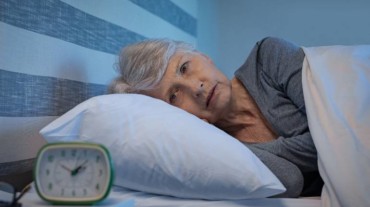World Senior Citizen’s Day: How to reduce loneliness in elderly
A few days ago, while scrolling Doom on Instagram, I stumbled upon a heartwarming video of a young man in his 20s taking a walk with his grandma on her we-time every weekend. His reward? Your smile! That’s what most seniors need – a little love, nurturing and companionship to lessen the loneliness they may feel as they age.
Indian business tycoon Ratan Tata’s recent investment in India’s first senior citizen start-up is seen as a welcome step in that direction. But it’s really up to each of us to show up for our elderly by being their much-needed companion to make their final years happier and better!
loneliness in old age
Older people go through many transitions and personal experiences in terms of how life is changing for them. They go through many physical, emotional, and financial changes that cause them to feel empty and lonely. The lack of a sense of belonging and companionship are some of the main reasons why this feeling creeps in among the older generation these days.
Health Shots turned to Dr. Kamna Chhibber, a clinical psychologist and director of mental health and behavioral sciences at Fortis Healthcare, to gain a deeper insight into the reasons behind older people’s loneliness.
Why are more and more older people becoming victims of grief and loneliness?
Loneliness can even lead to depression in older people. according to dr Chhibber There is not just one, but many reasons that contribute to this increasing problem of older people.

1. More nuclear families lead to loneliness among elders
In recent years there has been an increase in the exodus of the younger generation to other cities or countries for a better life. With this shift, the grandparents or elderly who have relied on the support of their younger generation have also changed. When left alone, older people struggle to sustain even the basics of life.
2. Technological advances
As the world moves towards better technological developments, older people find it difficult to keep up with these changes if their younger generation is not there to help them adapt to these changing circumstances.
3. Lack of belonging
A person usually derives their sense of belonging from close interaction with people of the same age group. However, as people get older, they stop developing this sense of joy, even in people their age. Because their fellow human beings also have to struggle with illness or grief.
dr Chhibber adds that these changes are making older people more aware of their life stage. Moreover, in this predicament, it becomes difficult for them to maintain their optimism and hope for the future. They generally associate their security with their future in relation to what and who they have created.
Either they rely on their accumulated finances or work done so far, or they rely on the relationships they have nurtured all along, their children and grandchildren, to draw their optimism.

The feeling of greater fear
Given the changed scenario, older people tend to slip into depression and feel anxious or anxious about the difficulty of coping with normal life activities. Knowing that there is no one to take care of them, they may experience mood swings, disruptive sleep patterns, and difficulty maintaining interest or enjoyment in activities they used to enjoy.
With a lack of company and support, they tend to experience more grief and bad moods, which further impairs their functionality. Fear also tends to increase. They feel greater irritability and frustration at the changes taking place in their family and society as a whole.
What you can do to reduce loneliness in older people
With the increasing challenges and loneliness that older people feel in today’s modern world, the responsibility to meet their emotional, physical and financial needs rests with us as a larger community, not just an individual.
All of us, as individuals, should keep thinking about this and looking for ways to make older people feel like part of the society in which they live.
Ongoing efforts should be made to show the right kind of respect for the values that our older people bring to our community. We should never lose sight of their contribution in shaping us to be who we are today and acknowledging the strong foundation they built for us by showing us the possibilities.